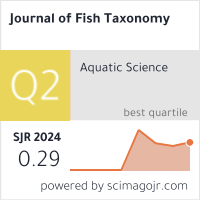The management of cyclic vomiting syndrome in Children: Systematic Review
DOI:
https://doi.org/10.64149/fishtaxa.36.1s.112-120Keywords:
Cyclic Vomiting Syndrome (CVS) – Pediatrics – Management – ChildrenAbstract
Background: Cyclic Vomiting Syndrome (CVS) is a debilitating pediatric condition characterized by recurrent episodes of extreme nausea and vomiting, significantly diminishing the quality of life for affected children and their families. Its cause and optimal treatment regimen remain ambiguous, albeit heightened clinical awareness.
Objective: To comprehensively evaluate and aggregate the latest information on supportive and medicinal management strategies for pediatric CVS.
Methods: A comprehensive search of PubMed, Scopus, Web of Science, and Google Scholar was performed for research published from 2010 to 2025. All peer-reviewed articles that talked about behavioral, nutritional, integrative, and pharmacological therapy options were eligible. The primary things we looked at while extracting data were how well the treatment worked, how often and how long episodes happened, how often they came back, and any side effects that came with them.
Results: Early administration of antiemetics, antimigraine medicines, and supportive interventions such as dietary modifications and cognitive-behavioral therapy demonstrated enhancements in long-term outcomes and a reduction in episode intensity. Nonetheless, the establishment of consistent guidelines was obstructed by discrepancies in treatment regimens and diagnostic criteria between studies.
Conclusion: While additional high-quality controlled trials are necessary to provide evidence-based treatment algorithms, the current data endorses a multimodal care strategy for CVS in children. Enhancing prognosis and quality of life in this demographic necessitates heightened clinical awareness and the promotion of multidisciplinary treatment.








